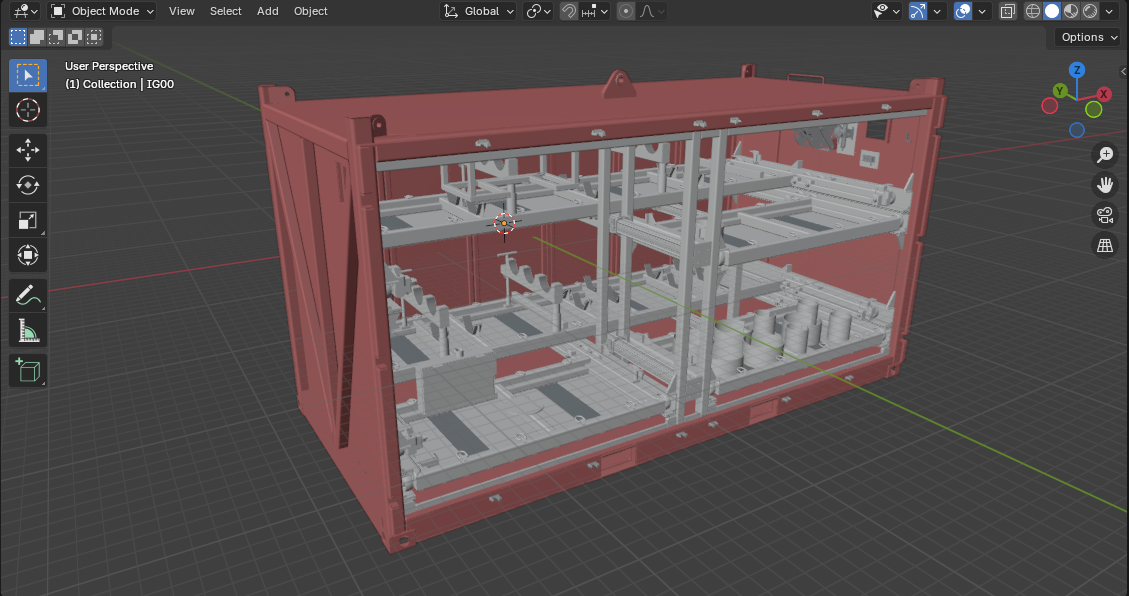Renting offshore containers and cargo baskets is a common practice in the oil and gas industry, particularly for projects with short-term or fluctuating needs. These specialized units are essential for the safe and efficient transportation and storage of equipment, tools, and supplies in the demanding offshore environment. However, selecting the right rental provider requires careful consideration of factors such as availability, quality, compliance with regulations, and cost-effectiveness.
Types of Rental Providers
Offshore containers and cargo baskets can be rented from a variety of providers, each offering different levels of service, expertise, and inventory. Understanding the types of providers available is essential for identifying the best fit for your project needs.
One of the most common sources for renting offshore containers and cargo baskets is specialized rental companies that focus exclusively on offshore equipment. These companies typically have a wide range of containers and baskets in their inventory, including units designed for specific applications such as hazardous goods transport, accommodation, or utility services. They often provide additional services such as delivery, installation, maintenance, and certification, making them a convenient option for operators with limited in-house resources.
Another option is to rent from manufacturers of offshore containers and cargo baskets. Many manufacturers offer rental services in addition to selling new units. Renting directly from a manufacturer can provide access to the latest designs and technologies, as well as assurance of quality and compliance with international standards. Manufacturers may also offer customization options, allowing you to rent units that are tailored to your specific project requirements.
Large oil and gas service companies often have their own fleets of offshore containers and cargo baskets, which they may rent out to clients as part of a broader service package. These companies typically have extensive experience in offshore operations and can provide valuable insights and support in selecting the right equipment for your needs. Renting from a service company can be particularly advantageous for complex projects that require integrated solutions.
Finally, some equipment rental companies that cater to a wide range of industries, including construction and logistics, may also offer offshore containers and cargo baskets. While these companies may not specialize in offshore equipment, they can be a cost-effective option for standard units that do not require specialized features or certifications.

Key Considerations for Renting Offshore Containers and Cargo Baskets
When renting offshore containers and cargo baskets, several key considerations should be taken into account to ensure that you select the right provider and equipment for your project.
One of the most important factors is the quality and condition of the rental units. Offshore containers and cargo baskets must be able to withstand the harsh offshore environment, including exposure to saltwater, high winds, and dynamic loads. It is essential to inspect the units thoroughly before renting to ensure that they are in good condition and free from defects such as corrosion, cracks, or structural damage. The rental provider should be able to provide documentation of recent inspections, maintenance, and certifications to verify the quality and safety of the equipment.
Compliance with international standards and regulations is another critical consideration. Offshore containers and cargo baskets must meet stringent safety and quality standards, such as those set by the International Organization for Standardization (ISO) and the International Maritime Organization (IMO). The rental provider should be able to demonstrate that their units comply with these standards and have been certified by a recognized classification society, such as Det Norske Veritas (DNV), the American Bureau of Shipping (ABS), or Lloyd’s Register.
Availability and lead time are also important factors to consider. Offshore projects often operate on tight schedules, and delays in obtaining equipment can have significant cost and operational implications. It is essential to confirm that the rental provider has the required units in stock and can deliver them to your location within the required timeframe. Some providers may offer expedited delivery services for an additional fee, which can be a worthwhile investment to avoid project delays.
Cost is another key consideration when renting offshore containers and cargo baskets. Rental rates can vary widely depending on the type of unit, the rental duration, and the level of service provided. It is important to obtain detailed quotes from multiple providers and compare the costs, taking into account factors such as delivery, installation, maintenance, and insurance. While cost is an important factor, it should not be the sole determinant; the quality, compliance, and reliability of the equipment and provider are equally important.
Additional Services and Support
Many rental providers offer additional services and support that can enhance the value of the rental agreement. These services may include delivery and installation, on-site maintenance and repairs, and certification and inspection services. Some providers may also offer training for your personnel on the safe handling and operation of the equipment, which can be particularly valuable for complex or specialized units.
Insurance is another important consideration when renting offshore containers and cargo baskets. The rental agreement should clearly specify the insurance coverage provided by the rental provider, as well as any additional coverage that may be required by your project. It is essential to ensure that the equipment is adequately insured against risks such as damage, loss, and liability, and to clarify the responsibilities of both parties in the event of an incident.
Conclusion
Renting offshore containers and cargo baskets is a practical and cost-effective solution for many offshore oil and gas projects. By selecting the right rental provider and equipment, operators can ensure the safe and efficient transportation and storage of equipment, tools, and supplies in the demanding offshore environment. Key considerations when renting include the quality and condition of the equipment, compliance with international standards and regulations, availability and lead time, cost, and the availability of additional services and support. By carefully evaluating these factors and working with a reputable rental provider, operators can minimize risks, optimize project efficiency, and ensure the successful execution of offshore operations.
